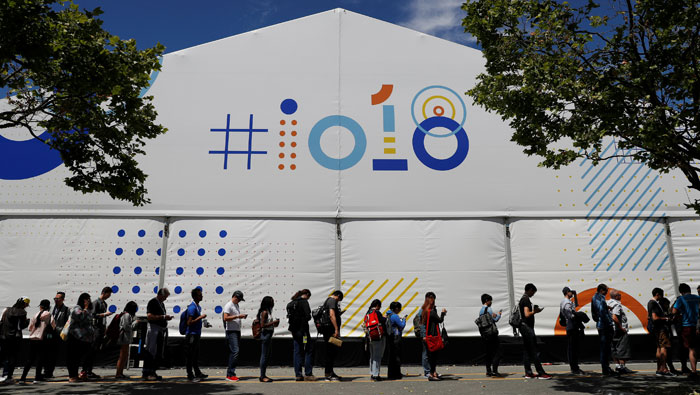
Mountain View (California): Google on Tuesday showed how its virtual assistant can now call restaurants and salons to book appointments, navigating complex conversations, as the Alphabet unit acknowledged that a technological onslaught was leaving users frazzled and needing a cure.
The demonstrations at Google I/O, an annual event for creators of Google-compatible products, showed how big technology companies are positioning themselves for a lucrative artificial intelligence revolution while grappling with heightened scrutiny about their societal influence.
Chief Executive Sundar Pichai and other officials said Google should find ways to reduce stress from technology and improve customers' "digital well-being."
"We can't just be wide-eyed about the innovations technology creates," he added.
Google showed how its email program can suggest sentences and how Google Assistant can call a salon or restaurant to make an appointment or reservation.
A new tool in its Android software, which runs most of the world's mobile phones, will notify users how much they are using apps and let them set limits for themselves and family members.
Google, Facebook, Amazon.com, Microsoft and other technology leaders are vying to keep users in their apps to maintain booming businesses of selling ads, goods or online computing services.
Amazon's Echo has taken the lead on "smart speakers" using voice assistants.
Offloading tasks to virtual assistants to manage photos, emails and schedules is part of the companies' remedy for decreasing screen time.
Google and its rivals have faced unprecedented criticism from former employees and US lawmakers over the last year.
Critics have urged the companies to halt the spread of misinformation and extremist propaganda, improve data privacy protections and play a greater role in combating app addiction. How artificial intelligence may replace human work or be infected with human prejudices is a growing concern.
Still, Google is infusing more services with artificial intelligence, which has become more powerful in recent years because of software breakthroughs and decreasing hardware costs.
Google Maps will make more dining suggestions by learning user habits and be able to pinpoint users' locations by using smartphone cameras to analyze their surroundings, the company added.
LG Electronics, Xiaomi Technology and other smartphone makers will begin integrating artificial intelligence into devices so that users can pull up reviews for a piece of clothing by holding their cameras up to it.